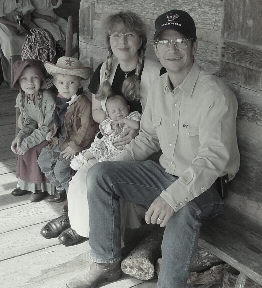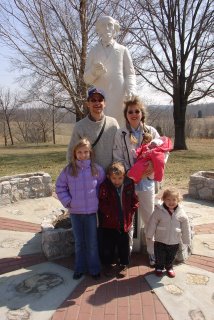 Chuck Colson
Chuck Colson's Breakpoint made us aware of a new book that gives weird people like us a name:
"If you encountered someone who made his own granola, bought his veggies at a food co-op, wore Birkenstock sandals, and wanted to save the environment, if you're like me, you'd probably think, well, there goes a lefty, or a liberal, or maybe an aging hippie. But the author of a new book says someone like that is just as likely to be a conservative Republican. In his book, Crunchy Cons, journalist Rod Dreher writes about a group of people he calls "crunchy conservatives," a group that includes, among others, "hip homeschooling mamas," "Birkenstocked Burkeans," "gun-loving organic" farmers, and "right-wing nature lovers. What Dreher, a Dallas Morning News columnist, means by "crunchy conservative" is someone who rejects the "consumerist and individualistic mainstream of American life." This rejection distinguishes their worldview from that of mainstream liberalism or conservatism, which, in Dreher's estimation, are both "essentially materialist ideologies."
The result of this materialism is "a society dedicated to the multiplication of wants and the intensification of desire, not the improvement of character." What sets Dreher's "crunchy cons" apart is the extent to which they have recognized the corrosive effects of a culture that is both materialistic and pornographic, and they are prepared to do something about it.
They all start at the most basic level: marriage and family. Of course, the liberal and the conservative mainstream both affirm the centrality of the family. After all, apart from some radicals, everybody is for the family, right?
Well, not like the "crunchy cons" are. People like Caleb Stegall, a Kansas lawyer who is profiled in the book, don't just talk a good game when it comes to family their lives testify to its importance. They walk away from prestigious jobs and sacrifice a second income in order to make the time to raise families correctly.
This emphasis on family and instilling character is why many crunchy cons homeschool. As a Manhattan mother of five told Dreher, homeschooling shows her kids that their well-being is what's most important. Instead of working to give them more "stuff," she gave them more time instead.
This de-emphasizing of "stuff" is another hallmark of Dreher's Crunchy Cons. It's not because they reject capitalism or seek to appear "holier-than-thou." It's because they understand the importance of postponing gratification in building character. They know that people accustomed to satisfying every material want are not likely to exercise restraint in any area of their lives.
This emphasis on restraint cuts across the grain of a culture where people are taught to regard anything that stands between them and their desires as a kind of "tyranny." So it comes as no surprise that most of Dreher's "crunchy cons" are Christians.
That's because Christians understand or should, at least how pervasive what writer Dan Knauss calls the "porno-culture" is. This pervasiveness is why protecting our kids requires diligence and commitment. Dreher's "crunchy" conservatives—mostly "crunchy" Christians—are reminders of what the apostle Peter meant when he called followers of Christ a "peculiar people." And it's why these "hip homeschooling mamas" and "right-wing nature lovers" are worthy of our respect, no matter what they wear on their feet or how much granola they eat.
Get links to further information on today's topic "
 Today Lillian was "buried with Christ through baptism into death in order that, just as Christ was raised from the dead through the glory of the Father" (Rom 6:4), she too may live a new life. We praise the Lord!
Today Lillian was "buried with Christ through baptism into death in order that, just as Christ was raised from the dead through the glory of the Father" (Rom 6:4), she too may live a new life. We praise the Lord!

